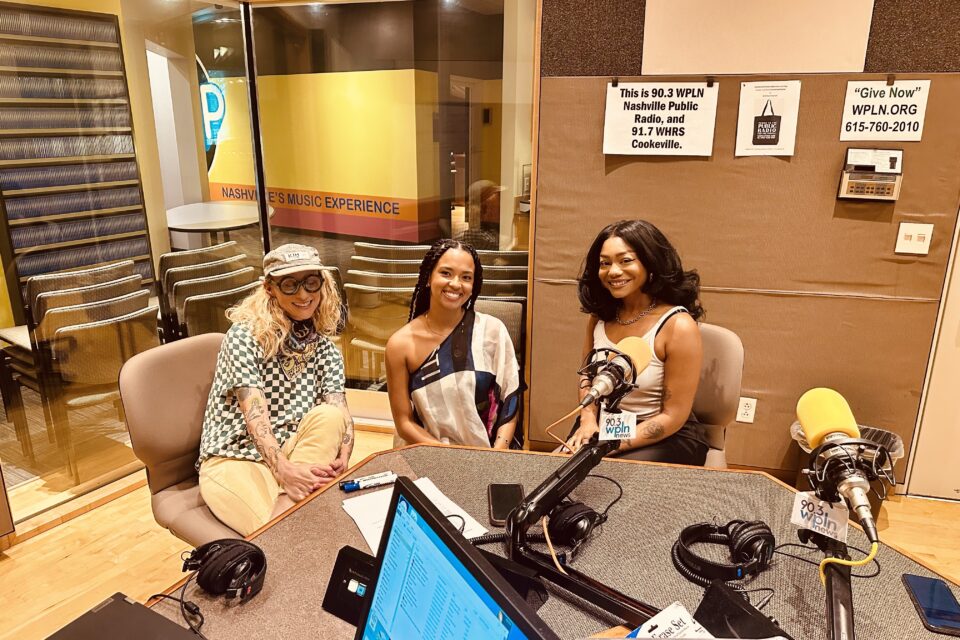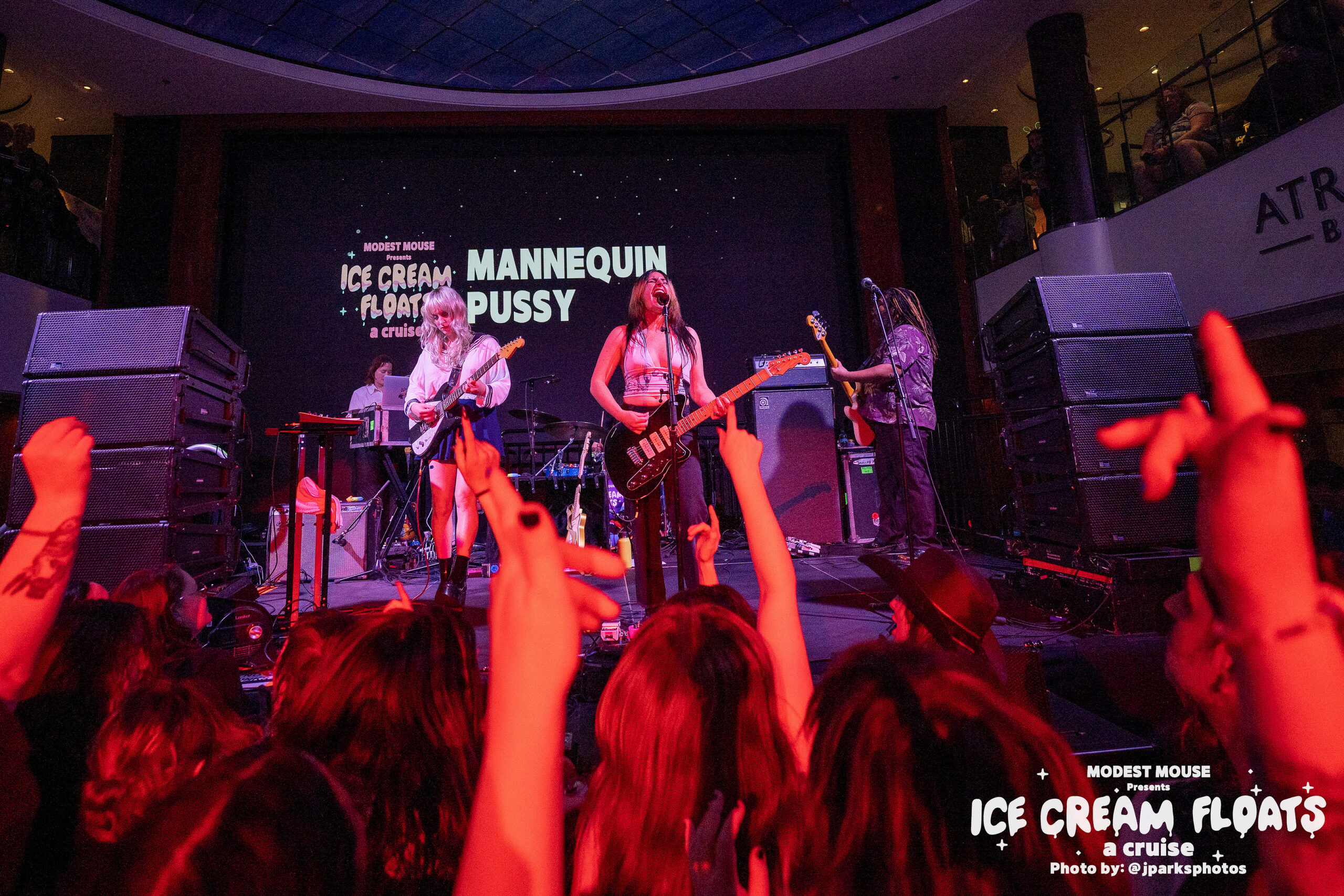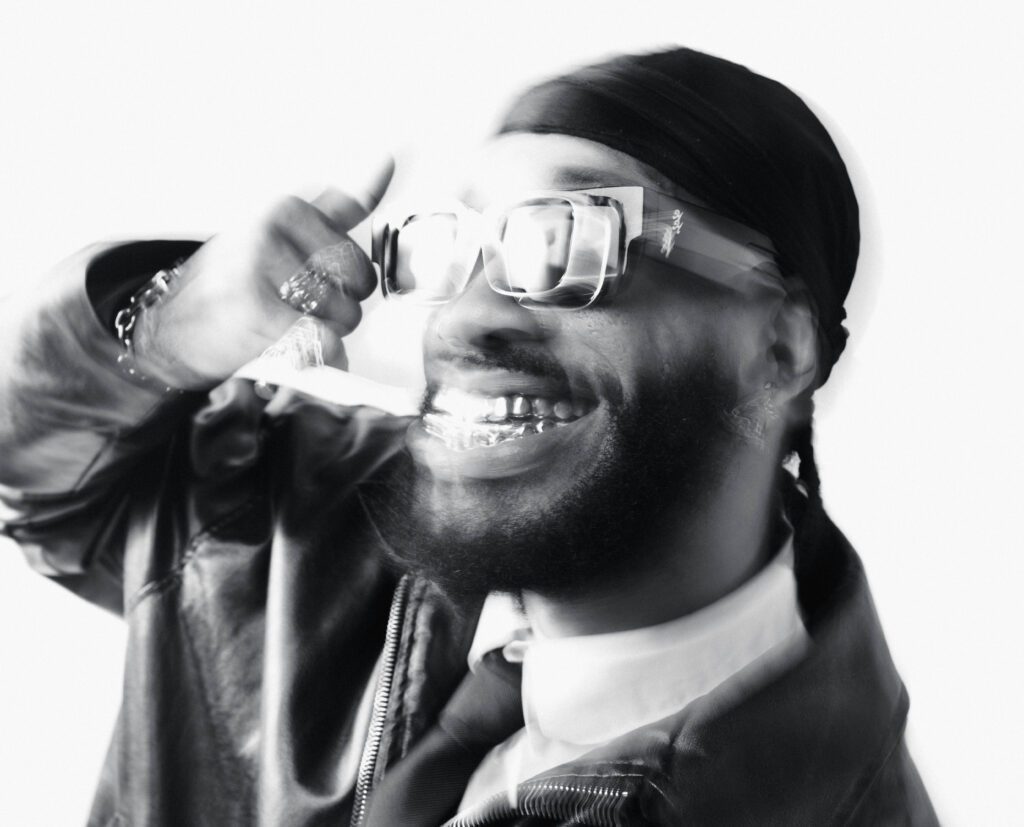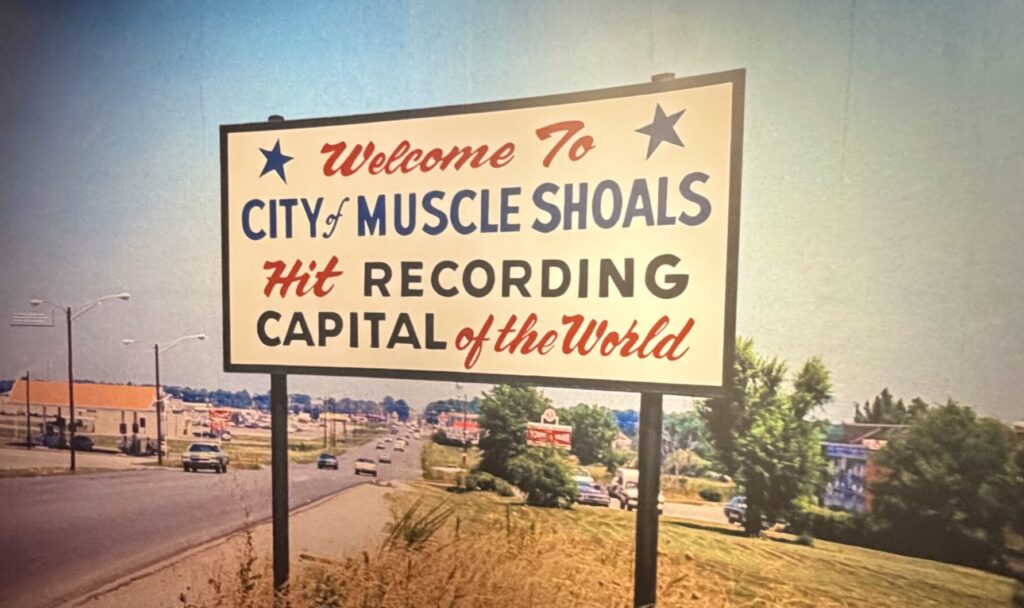I can’t tell you how many times I’ve followed new artists as they work to establish their names, get on showcases, and network in Nashville. And over the last few years, I’ve watched artists start to build their reputations with specialties that people haven’t always associated with the city. That includes tonally astute, sumptuous, neo-soul-updating R&B and emotionally exacting, singer-songwriter pop.
Both Kyleigh (who formerly went by Ca$hK) and Amber are at pivotal points in the process of building their careers — and they’re both playing the Black Arts Bash at Cheekwood this Saturday.
Among the parallels in their professional journeys, they’ve each grown very serious about refining the craft, building teams, and fleshing out an approach. And all in musical lanes where there’s no smooth, clear path already on the map.
So the three of us sat down to compare notes. You can hear this Q&A above, or read along below.
Jewly Hight: I imagine that nowhere in your formative years, when you were getting into performing and getting excited about writing your own stuff, were you fixated on the question of, “What genre is this going to be? How am I going to categorize this?” Because that’s not how artists think.
That is something that the industry superimposes upon you, and I think that that burden is often particularly and unfairly heavy for artists who happen to be women and artists who happened to be people of color. When did you start to recognize that that was an expectation and to think about how you want to articulate who you are as an artist?
Kyleigh: I didn’t go into music thinking, “OK, I’m gonna make R&B because the industry says I have to.” It wasn’t until I decided that I didn’t want to call myself just R&B when I started feeling that pressure and thinking, “Well, I have be something. I have to call myself one thing.”
But the older that I get and the more that I explore the things that I’m interested in and the things that I am influenced by, I start to feel less pressure to want to call myself anything and feel more pride and more uplifted when I’m doing stuff that isn’t one thing. Because as an artist, we aren’t one thing. As people, we’re not one thing. We’re a makeup of everything we experience and all of the things that we listen to and the things we’re inspired by and the things that feel core to us.
There was a point where the pressure was on to pick something, and I decided I don’t want the pressure of the world to be the thing that tells me what to do. Especially with my art, which is so personal and important to me and that I try to be so intentional with. [That’s] when I just decided the genre doesn’t matter. It sounds like me. I’m the genre. The thing that drives it all and connects it all is me.
Jewly: What about you, Amber?
Amber Ais: As a little Black girl growing up in a predominantly white space, I never really saw Black women do pop. And I remember when I started writing, I started playing guitar and most of the stuff I was listening to was pop or singer-songwriter. And it felt like that was the most authentic expression of me, you know?
I think it was met from Black people and white people [with], “Why don’t you just do R&B?” Almost just being like, “You’re Black, so why don’t you just make this Black genre?” And I love R&B music. I think it’s beautiful. But if it’s not the most authentic expression of me, I’m not gonna really tap into that.
And I think that’s totally okay, because Black people, Black women aren’t a monolith. I can make pop music if I want to, and if I later decide I wanna do down-the-middle R&B, then I could do that too. It kind of gave me this fire, because it’s like, “Actually, I’m gonna make pop music because I like making pop music. And you can hate it, but I actually don’t care.” Because if we can let white people rap, if we could let white make soul, then why can’t I be a pop star? What is the problem?
Jewly: You could each be building your careers elsewhere, but you decided to stay here, Kyleigh, after Belmont University and, Amber, you decided to move here from Boston after getting your post-Berklee College of Music footing. So I wonder what you were looking for or expecting to find in terms of collaborators, kindred spirits, infrastructure, opportunities, and what realities you’ve actually each found.
Kyleigh: Well, when I decided to stay here, it was for a number of reasons.
Going to Belmont, they set you up so well with the Nashville landscape. While you’re going to school there, they teach you a lot about Nashville and the Nashville music industry. They give you a nice little jumping off point. They give you a lot of networking opportunities
That’s something that kind of felt safety net-y in a way; I’m already here and I feel comfortable here. And I’m excited because at the time, the R&B scene is growing. It kind of just felt like a good place for me to be. A lot of people were in my ear, like, “You should go to Atlanta.” I don’t see myself in Atlanta personally.
The Nashville community is like so open-armed. People really wanna work together. The community is probably the biggest reason like why I decided to stay. As I was doing my four years at Belmont, building that community and making the friends, the peers around me ,who are also hungry for the same things, helped me to feel uplifted and supported in this city.
So as I continued living here, that just continues to grow. I have so many people, like you guys here at WNXP, championing my growth. The connections I’ve been able to make here have been life changing, and I really don’t think I would have been able to have those same experiences if I hadn’t stayed.
Jewly: Amber, you didn’t wind up in Nashville on accident. What made you leave Boston and come here?
Amber: I thought about it a lot, prayed about it a lot, and Nashville felt like the place. Just because I’d heard rumors that everyone is very collaborative. I just found that to be true. People are super ready to write with you, super ready help you out.
I was from Boston. There’s no industry up there, and being here, it’s tangible. You throw a stone and you hit an A&R [person].
Jewly: Kyleigh, you were talking about the circle of peers or like-minded music-makers that you started to find in college and have expanded since. Tell us about that.
Kyleigh: Pretty much everybody at Belmont is trying to make it in the industry in some respect. Summer Joy was someone I met at Belmont. She’s my roommate now. We write together.
Who else did I meet there? Robbie Ricucci. He’s been producing a lot of my music. My tribe is definitely coming together: Sam Hayes, TeAndre Holmes, Stephen Miller, Corey Walker, Summer Joy, Robbie. Those are my core, my first circle of influence, when it comes to collaborations and playing shows.
That’s kinda how I got in with those people anyways, is going out and booking shows, and they happened to be playing in the house band one night and that’s how we got connected. We had a vibe, and then I asked them to play with me again and again and again.
People are catching onto [what I’m doing] and just wanting to see me grow. And I think with the transition, especially in the last year or so, going from Ca$hK to Kyleigh and that whole de-transition and re-emergence, just really finding myself, I feel like people really started coming out of the woodwork when.
Like you’re saying, we’re kinda on the verge of a boom, in a way. The team is definitely ever-growing right now. And I think as I become more sure about the brand that I’m trying to go with and the vision that I am working with, meeting these people and having these people in my corner has been really essential in helping me feel solid on stuff and supported and safe to explore.
Jewly: Amber, you have a vast body of work, music that you’ve been releasing since the late 2010s, and there’s also a lot of new stuff, and more to come. I feel like your evolution as an artist is a little more subtle than a name change, like Kyleigh’s talking about. I think it’s a little bit more about how you are playing with perspective in your songwriting differently. What has your intention been as you refine what you do?
Amber: I think as a woman who’s going to be entering their thirties next year, sonically and songwriting-wise, I think I just have a bit more of a mature perspective where I wanna challenge myself by trying to write about the same things in a unique way, so that it’s still fresh. So I think I’m trying to like master relating to people but still being unique.
Jewly: So, Kyleigh and Amber, I’m curious: What your priorities are right now as artists and professionals?
Kyleigh: One of the biggest things that I’m trying to do right now is I’m finishing a project, an EP, that’s going to come out later on this year, and using that to go on the road. That’s my one of my main goals, is opening for somebody else’s tour
In addition to that, it’s also making music that I really love and enjoy and feel proud about and just continuing to refine my artist project overall. Really what I’m trying to do is build a world. So working on building my team that creates the visual aspects of everything, creating the world that is Kyleigh and what that looks, how people can relate to that.
Jewly: Some of the new visual esthetics are giving grounded, neo-soul maturity.
Kyleigh: I feel like “grounded” is a good word.
Jewly: I think that also plays into your choice of arrangement and instrumentation right now. It’s a lot of kind of hand-played instruments and jazz-influenced elements to how those players are approaching the songs.
Kyleigh: Yeah. When I was making Ca$hk music, it was sounding very much in the box. A lot of the sounds were computerized and MIDI, and it was cool and I think it served its purpose for what I was trying to do back then. But another priority of mine is trying to make music that translates to a live show in a way that feels similar to what the records are doing.
Jewly: Amber, how’s your artistic to-do list?
Amber: I’m also working on another project, just to really lock in a sonic identity. I want it to be like, “This is who she is.”
I’m collaborating with a lot of people, trying to find one producer that just works with me.
And definitely hoping for pub in some sort of way.
Jewly: You mean a publishing deal?
Amber: Yeah, possibly. There’s just like this feeling in my gut that it’s gonna pop off soon. I’m really just trying to prepare for that.
I feel like we think that the destination of our lives is like, “Once I pop off, that is the destination and I’m finished.” But that actually is the start. I think longevity is what we should be chasing. Virality doesn’t mean much. That’s, like, one second of your life.
I guess is another priority of mine is building a team, having people who vouch for me, building a project. All those things take time, having those foundational things in place, so that when the time comes, I’m ready for it, you know?




